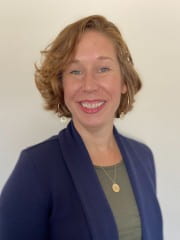STEP – Small Teaching Enhancement Program
STEP (Small Teaching Enhancement Program) is a short-term semester-long (or summer) program where faculty meet individually with a CTAL staff member to develop one aspect of their teaching throughout a semester, e.g. a student engagement strategy or new teaching tool, and implement the revision within the same semester. While the consultation program runs for an entire semester, the major time commitment is prior to the start of the course and [aims to] align with course design/revision.
Examples of Potential STEP Projects
- The development of a new student learning outcome
- Incorporating collaborative concept maps as assessment tools
- Replacing a one-time exam with an alternative assessment strategy
- Building primary literature research articles into lecture/class activities
- Using Google Suite applications to provide formative feedback to students
- Collecting and evaluating mid-semester student feedback

Questions about STEP?
Contact CTAL’s STEM Educational Development Specialist Anne McDuell, MS
Who is STEP designed for?
While CTAL offers consultations for all instructors of record, the STEP program is currently running as a pilot program for STEM courses only at this time. If you consider yourself to be outside of STEM and are interested in participating in the program, please fill out an expression of interest and we will consider your request on a rolling basis.
How do I participate in STEP?
Interested faculty members should fill out an expression of interest here.
How does participating in STEP help me?
Beyond assisting in further developing your course, upon completion of STEP you also will receive a letter of participation from CTAL that may be used in your promotion and tenure dossier to demonstrate your commitment to improvement in teaching and pedagogy.
What does the STEP consultation process look like?
The STEP consultation process is flexible and designed to be responsive in order to meet the individual needs of faculty. While there is a general “structure” in terms of assessing a faculty member’s individual needs and crafting a plan, different models exist depending on the course and faculty member. See below for representative models and personas for faculty seeking involvement with STEP.
Model A: Ideal for instructors that are teaching a course for the first time or redesigning a course
| Week of Semester | What Happens | Estimated Time Commitment |
| ≤3 weeks before start |
|
1-2 hours (includes meeting with CTAL staff) |
| ≤2 weeks before start |
|
≤2 hours (includes meeting with CTAL staff |
| ≤1 weeks before start |
|
≤2 hours (includes meeting with CTAL staff) |
| 1st week of semester |
|
≤2 hours (includes meeting with CTAL staff) |
| Biweekly, thereafter |
|
1-2 hours |
Model B: Ideal for instructors seeking support for smaller course-level changes OR responding to mid-semester student feedback
| Week of Semester | What Happens | Estimated Time Commitment |
| Weeks 1-5 |
|
1-2 hours for initial meeting with CTAL staff |
| Weeks 6-7 (approx.) |
|
≤2 hours (includes meeting with CTAL staff |
| Weeks 7-9 (approx.) |
|
≤2 hours (includes meeting with CTAL staff) |
| Weeks 10-12 |
|
≤2 hours (includes meeting with CTAL staff) |
| As requested |
|
1-2 hours |
Note: If neither of these models fit your individual needs, we may be able to develop a customizable plan that will work for you and your students.
